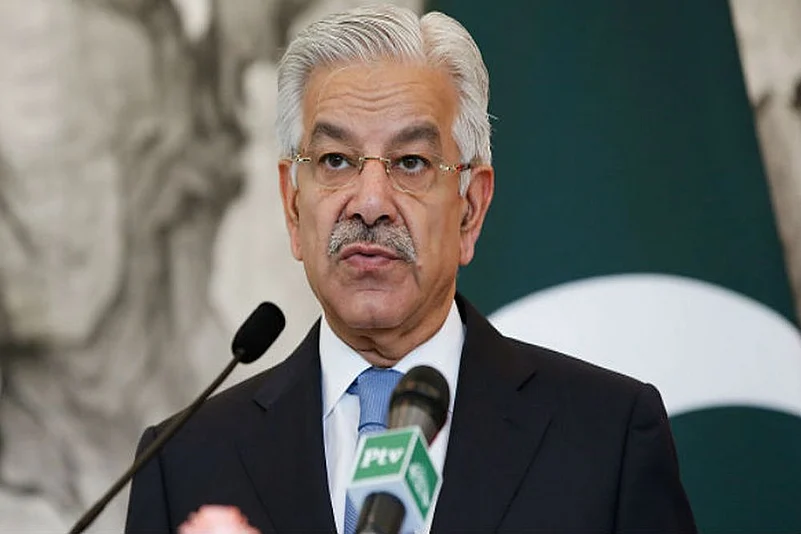Pakistan Defence Minister Khawaja Asif publicly admitted the country라이브 바카라 history of supporting, training and funding terrorist organisations as he called it “dirty work” for the West and called it 'a mistake' for which he said Pakistan had suffered.
In an interview with Sky News aired overnight, Khawaja Asif was asked to speak on the terrorist attack in Pahalgam that killed 26 people earlier this week when he made the comment.
Terrorists opened fire in Pahalgam on Tuesday afternoon, killing 26 people, mostly tourists, in the deadliest attack in the Valley since the Pulwama strike in 2019.
The Resistance Front (TRF), a proxy of the banned Pakistan-based Lashkar-e-Taiba (LeT), claimed responsibility for the attack.
Explosive TV Interview Of Pakistan Minister
On 'doing Dirty Work' For US
News presenter Yalda Hakim questioned Asif on Pakistan라이브 바카라 response and stance on terrorism. Aiming at Asif he said, “You do admit, sir, that Pakistan has had a long history of backing and supporting and training and funding these terrorist organisations."
“Well, we have been doing this dirty work for the United States for about three decades, you know, and the West, including Britain,” replied Asif.
“That was a mistake, and we suffered from that, and that is why you are saying this to me. If we had not joined the war against the Soviet Union and later on the war after 9/11, Pakistan's track record… was an unimpeachable track record,” he said.
“It is very convenient for… the big powers to blame Pakistan for whatever is happening in this region. When we were fighting the war on their side way back in the 80s against the Soviet Union, all these terrorists of today, they were wining and dining in Washington.
“And then came the 9/11 attacks. Again, the same situation was repeated. I think our governments then made a mistake,” he said, adding that Pakistan was “used as proxies” at the time.
Pakistan's Role In Pahalgam Terror Attack
According to PTI report, the minister was further questioned about Pakistan's role in Tuesday라이브 바카라 terror attack in Pahalgam and that The Resistance Front, which has admitted responsibility for the strike, which is reportedly an off-shoot of the banned Lashkar-e-Taiba (LeT).
Asif replied to that saying, “Lashkar-e-Taiba doesn’t exist in Pakistan anymore. It is extinct. It is extinct… if the parent organisation does not exist, how can the offshoot take birth here."
When pointed out by a BBC reporter in another interview that India has named three of four suspected militants behind the attack, saying two are Pakistani nationals, Asif denied the claims and said that Pakistan played no role in the shooting.
"We do not have any connection to what is happening in Kashmir," Asif said.
Pakistan's Prepared For 'All-Out War'
When asked if Pakistan fears an escalation as a result of the Pahalgam terrorist attack, the minister said the country is prepared to respond “in kind”.
“We will measure our response to whatever is initiated by India, according to that. It would be a measured response, if there is an all-out attack or something like that, then obviously there will be an all-out war,” he said in the virtual interview.
Asif expressed serious concerns over the possibility of a full-scale conflict between India and Pakistan—two nuclear-armed nations—saying the international community should be “worried.” He emphasized his hope that the situation could be resolved through dialogue and diplomacy.
Dismissing allegations from India, Asif claimed the incident in question was a “false flag” operation, staged to escalate tensions.
He stressed that Pakistan라이브 바카라 military is “prepared for any eventuality” and cautioned that any action taken by India would be met with a “measured response.”
Similarly, speaking to the BBC, Asif said that it could not take India라이브 바카라 actions “lying down”, he added, “We have to respond in the same manner, in the same language.”
Pahalgam Attack
At least 26 people, mostly tourists, were killed and dozens injured when terrorists opened fire in Pahalgam, Jammu and Kashmir, on April 22. The day after the attack, India said it had links to cross-border elements.
In response, India imposed punitive measures against Pakistan, including suspending the Indus Waters Treaty, reducing diplomatic ties, expelling Pakistani diplomats and senior defence officials, cancelling all visas issued to Pakistani nationals, and ordering them to leave the country within 48 hours. The Indian government also shut the Attari-Wagah border crossing.














